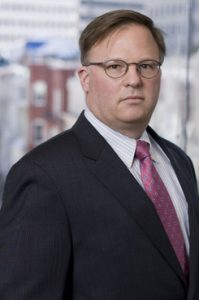Big Changes in Summer Associate Hiring Are On the Way—Slowly
Law firm recruiters and career services officials at law schools say they don't expect major changes in the on-campus interviewing process this year, despite the recent overhaul of the National Association for Law Placement's recruiting guidelines. But the summer associate hiring process could look much different in two or three years, they say.
March 07, 2019 at 07:00 PM
7 minute read

The Big Law recruiting scene got a jolt in December when the National Association for Law Placement tossed its long-standing guidelines regarding when and how employers hire summer associates in hopes of spurring innovation.
It's the biggest change to hit summer associate recruiting in decades, but as with most major changes in the legal industry, a rapid overhaul is unlikely.
The NALP changes took many by surprise, and firms and schools say they need more time to assess what recruiting policies and timelines will work best for them. Hence, law school career services deans and law firm recruiters say they expect this year's on-campus interview season to play out much as it has in previous years.
Register here to snag a spot in a live discussion on March 14 between Law.com legal education reporter Karen Sloan and Law.com editor-in-chief Leigh Jones about this year's Go-To Law Schools Report.
Meanwhile, those involved in the recruiting process say schools and firms are generally comfortable with the status quo and are reluctant to unveil wildly different approaches to recruiting lest it put them at a disadvantage on the highly competitive hiring market.
“This industry is one where a lot of the firms are followers,” said Lauren Marsh, director of attorney recruiting at Akin Gump Strauss Hauer & Feld. “That's how we have remained throughout this process. It's really hard to tell whether or not organizations and schools will be willing to step out of the norm.”
Visit the full 2019 Go-To Law Schools report here to see our top 50 ranking according to the percentage of recent graduates hired by Big Law; the campuses that saw the most alumni promoted to partner last year; and the schools that outperform their U.S. News rank when it comes to large firm hiring.
A growing number of law schools that have already decided to stick with the previous NALP timing guidelines are asking employers to adhere to those, at least for this year. They include Harvard Law School; the University of Chicago Law School; Yale Law School; and Northwestern University Pritzker School of Law. And no major firms have yet to announce significant deviations from the previous guidelines. (NALP is hosting a web page where schools and firms may post their official policies, though information is scarce thus far.)
“We want to make sure our students are competitive in the marketplace and have available to them all the opportunities they previously had,” said David Diamond, assistant dean for career strategy at Northwestern Law. “Until we see how the marketplace reacts overall to this new landscape, we don't want to make any rash decisions.”
 James Leipold.
James Leipold.But career services officials and law firm recruiters allow that the summer associate recruiting process may well look different in two or three years, as they figure out how much experimentation the marketplace will allow. That's the ultimate goal of the changes, according to NALP Executive Director James Leipold, who said in December that a one-size-fits-all approach to hiring no longer makes sense.
The new guidelines did away with several longtime recruiting provisions, including a prohibition on recruiting first-year law students until Dec. 1, which was intended to allow them to focus solely on their studies in the first semester. The new guidelines also eliminate the 28-day period in which law students can hold summer associate offers open as they choose between firms. That means so-called exploding offers, in which firms require students to accept an offer in fewer than 28 days lest it be rescinded, are officially allowed, though individual law schools may prohibit them.
That 28-day waiting period may make sense for a large firm office with many summer associate slots, but the timing can be burdensome for smaller offices looking for five or fewer summer associates, Leipold said. In place of NALP's recommended recruiting timeline is a more general set of principles that call on employers, schools, and students to be fair and transparent.
Mark Weber, dean of career services at Harvard, said the school wanted to announce a recruiting policy as quickly as possible in the wake of NALP's announcement in order to prepare for the upcoming on-campus interview program and to help inform that larger summer associate recruiting discussion. He and his colleagues spent the semester break digesting the changes NALP had made before announcing in early January that the school would stick with the previous timeline for the 2019 recruiting cycle.
“After [the NALP announcement] came out, I probably got about 50 calls from employers and schools,” Weber said. “The calls basically went as follows: 'What is Harvard going to do? What are you thinking?' We wanted to come out with something so that employers could plan accordingly and so other schools could look at it and see what we're doing. By putting something out there, it gave other schools comfort in making a decision.”
Yet other schools are taking their time and gathering input from constituents before deciding how to proceed with on-campus interviews, which begin in late July at some schools and continue through August.
Georgetown University Law Center has been in conversations with employers and has held focus groups with second- and third-year students who have gone through the summer associate recruiting process while it devises its hiring guidelines, said Amy Jones Mattock, the senior director of the school's office of career strategy. (Jones is member of the NALP board that devised the new guidelines, but does not speak on behalf of the board.)
“We've thought through different scenarios with regard to what we might propose as our own timing guidelines,” she said. “We have been working really hard to come up with guidelines we believe will best position our students and satisfied the varied employers we have who come to our campus.”
Columbia Law School, which sends a higher percentage of graduates into large firm associate jobs than any other school, is also asking for feedback from employers before deciding what guidelines will be in place for the upcoming on-campus interview season, said Dean of Career Services Marta Ricardo. She hopes to unveil those guidelines by the end of the spring semester.
The University of Virginia School of Law is taking a somewhat different approach and not yet involving employers in its early discussions about how it will proceed, according to Assistant Dean for Career Services Kevin Donovan. Those talks are instead happening among administrators. “We're trying to focus on what's in the best interest of our students, and build any guidelines we have based upon that,” he said.
Stephen Gill, a partner and chairman of talent management at Vinson & Elkins, said he ultimately expects schools and firms to settle into some widely accepted recruiting practices and doesn't foresee a free-for-all. But he predicted that firms will begin outreach to first-year law students earlier now that the Dec. 1 rule no longer exists. An extended recruiting season could have its downsides, however.
“The last thing the law firms want to do is make recruiting a 365-day event. That's not in the best interest of the law students either because they need to focus on their studies,” Gill said. “But we're not going to want to be at a competitive disadvantage if other law firms are pushing up recruiting. We would be in favor of the schools imposing some limitations on what firms can reach out.”
This content has been archived. It is available through our partners, LexisNexis® and Bloomberg Law.
To view this content, please continue to their sites.
Not a Lexis Subscriber?
Subscribe Now
Not a Bloomberg Law Subscriber?
Subscribe Now
NOT FOR REPRINT
© 2025 ALM Global, LLC, All Rights Reserved. Request academic re-use from www.copyright.com. All other uses, submit a request to [email protected]. For more information visit Asset & Logo Licensing.
You Might Like
View All
University of Chicago Accused of Evicting Student for Attending Gaza-Israel Protest
3 minute read
Sanctioned Penn Law Professor Amy Wax Sues University, Alleging Discrimination
5 minute read

The Met Hires GC of Elite University as Next Legal Chief
Trending Stories
- 1How ‘Bilateral Tapping’ Can Help with Stress and Anxiety
- 2How Law Firms Can Make Business Services a Performance Champion
- 3'Digital Mindset': Hogan Lovells' New Global Managing Partner for Digitalization
- 4Silk Road Founder Ross Ulbricht Has New York Sentence Pardoned by Trump
- 5Settlement Allows Spouses of U.S. Citizens to Reopen Removal Proceedings
Who Got The Work
J. Brugh Lower of Gibbons has entered an appearance for industrial equipment supplier Devco Corporation in a pending trademark infringement lawsuit. The suit, accusing the defendant of selling knock-off Graco products, was filed Dec. 18 in New Jersey District Court by Rivkin Radler on behalf of Graco Inc. and Graco Minnesota. The case, assigned to U.S. District Judge Zahid N. Quraishi, is 3:24-cv-11294, Graco Inc. et al v. Devco Corporation.
Who Got The Work
Rebecca Maller-Stein and Kent A. Yalowitz of Arnold & Porter Kaye Scholer have entered their appearances for Hanaco Venture Capital and its executives, Lior Prosor and David Frankel, in a pending securities lawsuit. The action, filed on Dec. 24 in New York Southern District Court by Zell, Aron & Co. on behalf of Goldeneye Advisors, accuses the defendants of negligently and fraudulently managing the plaintiff's $1 million investment. The case, assigned to U.S. District Judge Vernon S. Broderick, is 1:24-cv-09918, Goldeneye Advisors, LLC v. Hanaco Venture Capital, Ltd. et al.
Who Got The Work
Attorneys from A&O Shearman has stepped in as defense counsel for Toronto-Dominion Bank and other defendants in a pending securities class action. The suit, filed Dec. 11 in New York Southern District Court by Bleichmar Fonti & Auld, accuses the defendants of concealing the bank's 'pervasive' deficiencies in regards to its compliance with the Bank Secrecy Act and the quality of its anti-money laundering controls. The case, assigned to U.S. District Judge Arun Subramanian, is 1:24-cv-09445, Gonzalez v. The Toronto-Dominion Bank et al.
Who Got The Work
Crown Castle International, a Pennsylvania company providing shared communications infrastructure, has turned to Luke D. Wolf of Gordon Rees Scully Mansukhani to fend off a pending breach-of-contract lawsuit. The court action, filed Nov. 25 in Michigan Eastern District Court by Hooper Hathaway PC on behalf of The Town Residences LLC, accuses Crown Castle of failing to transfer approximately $30,000 in utility payments from T-Mobile in breach of a roof-top lease and assignment agreement. The case, assigned to U.S. District Judge Susan K. Declercq, is 2:24-cv-13131, The Town Residences LLC v. T-Mobile US, Inc. et al.
Who Got The Work
Wilfred P. Coronato and Daniel M. Schwartz of McCarter & English have stepped in as defense counsel to Electrolux Home Products Inc. in a pending product liability lawsuit. The court action, filed Nov. 26 in New York Eastern District Court by Poulos Lopiccolo PC and Nagel Rice LLP on behalf of David Stern, alleges that the defendant's refrigerators’ drawers and shelving repeatedly break and fall apart within months after purchase. The case, assigned to U.S. District Judge Joan M. Azrack, is 2:24-cv-08204, Stern v. Electrolux Home Products, Inc.
Featured Firms
Law Offices of Gary Martin Hays & Associates, P.C.
(470) 294-1674
Law Offices of Mark E. Salomone
(857) 444-6468
Smith & Hassler
(713) 739-1250








